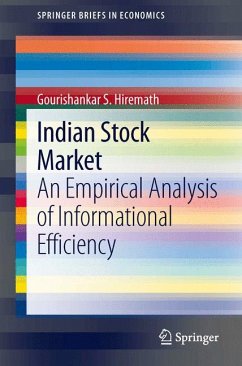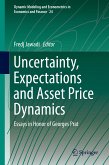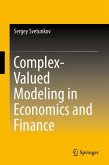India is one of the major emerging economies of the world and has witnessed tremendous economic growth over the last decades. The reforms in the financial sector were introduced to infuse energy and vibrancy into the process of economic growth. The Indian stock market now has the largest number of listed companies in the world. The phenomenal growth of the Indian equity market and its growing importance in the economy is indicated by the extent of market capitalization and the increasing integration of the Indian economy with the global economy. Various schools of thought explain the behaviour of stock returns. The Efficient Market Theory is the most important theory of the School of Neoclassical Finance based on rational expectation and no-trade argument. The book investigates the growth and efficiency of the Indian stock market in the theoretical framework of the Efficiency Market Hypothesis (EMH). The main objective of the present study is to examine the returns behaviour in the Indian equity market in the changed market environment. A detailed and rigorous analysis, made with the help of the sophisticated time series econometric models, is one of the key elements of this volume. The analysis empirically tests the random walk hypothesis and focuses on issues like nonlinear dynamics, structural breaks and long memory. It uses new and disaggregated data on recent reforms and changes in the market microstructure. The data on various indices including sectoral indices help in measuring the relative efficiency of the market and understanding how liquidity and market capitalization affect the efficiency of the market.
Dieser Download kann aus rechtlichen Gründen nur mit Rechnungsadresse in A, B, BG, CY, CZ, D, DK, EW, E, FIN, F, GR, HR, H, IRL, I, LT, L, LR, M, NL, PL, P, R, S, SLO, SK ausgeliefert werden.









